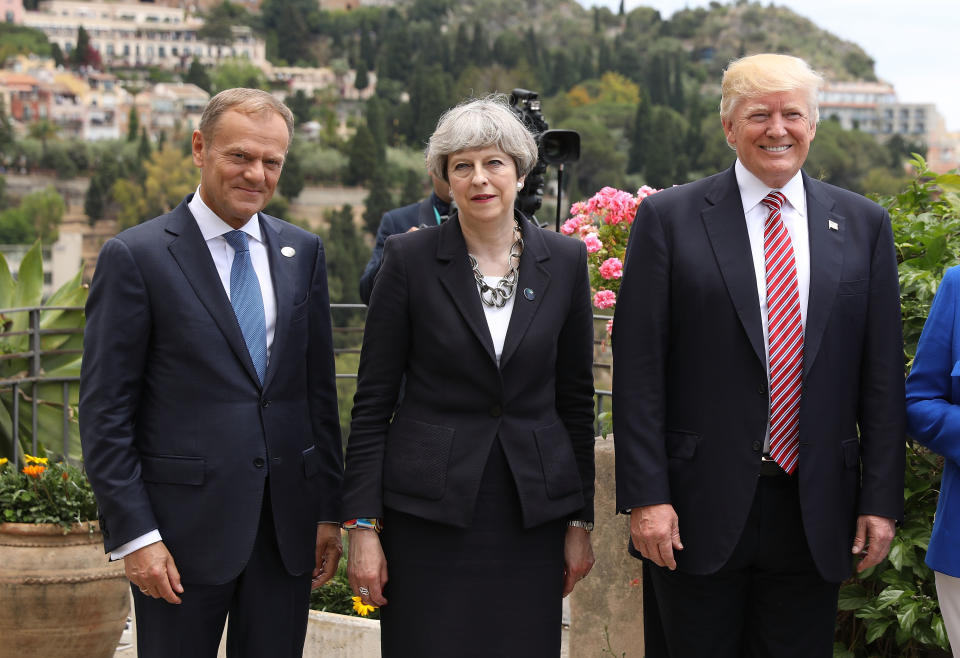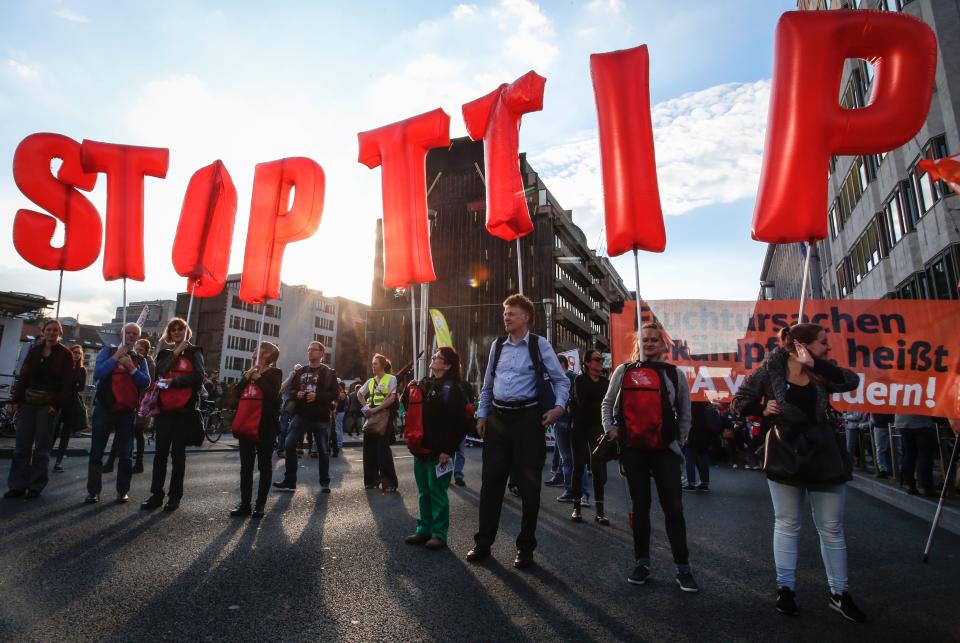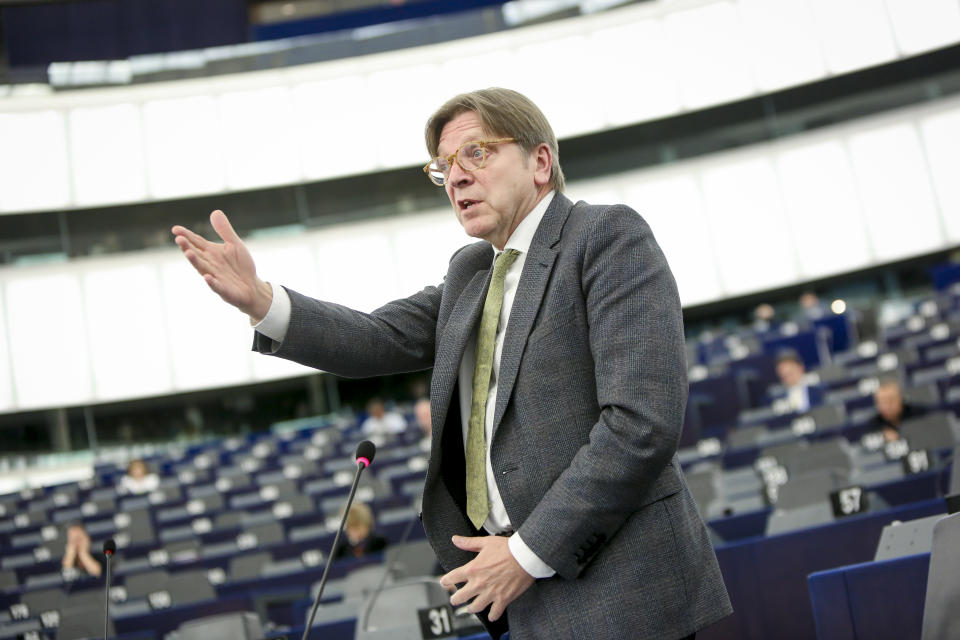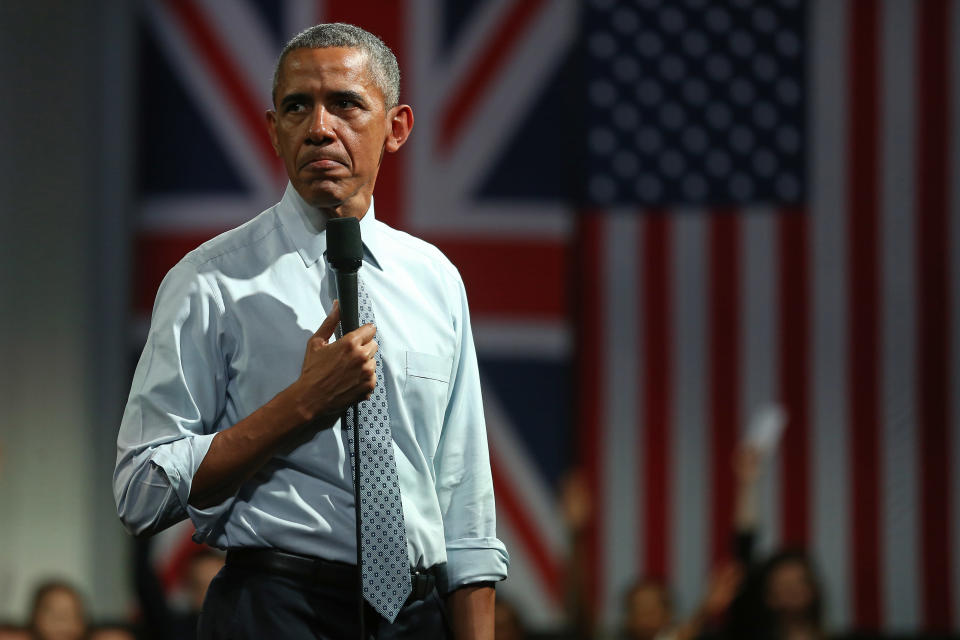Steel tariffs spark race between EU and UK to sign trade deal with Trump

The EU has fired the starting gun on a race with Britain to sign a trade deal with the US.
UK International Trade Secretary Liam Fox is visiting Washington this week to lay the ground for a post-Brexit trade deal with the Trump administration.
But Fox could find he has competition after EU leaders said they wanted to restart trade talks with the US as a solution to the transatlantic tension over new US tariffs on steel and aluminium.
EU Council president Donald Tusk said he wants to make “trade not war” with US President Donald Trump.
Make trade, not war, Mr President.
Instead of trade war, we should go back to EU-US trade talks now.
— Donald Tusk (@eucopresident) March 14, 2018
Speaking during a visit to Finland, Tusk said: “Let me be clear: instead of risking a trade war, which he seems eager to wage, we should be aiming for greater cooperation.
“When the President says he is unhappy about too many barriers and tariffs between the EU and the US, I can understand him.
“We are not happy either. That is the reason why, a few years ago, we started trade negotiations with the US.
“We should go back to these talks now. Make trade, not war, Mr President.”
A trade deal between the EU and US – the Transatlantic Trade and Investment Partnership (TTIP) – was supposed to be signed in 2016.

It would have represented the world’s biggest bilateral trade deal encompassing half the world’s economy, but it floundered after three years of negotiations amid protests over concerns it would drive down social and environmental standards and damage public services in Europe.
Negotiators from the two sides didn’t agree on a single point in a 27 chapter discussion document.
Guy Verhofstadt, the former Belgian Prime Minister and the European Parliament’s Brexit coordinator, said yesterday that the ongoing tariff dispute would not be happening if TTIP had been signed.
“We have no interest to trade war and what we have to offer is instead a trade deal from the European side,” he told MEPs in Strasbourg.

“There are many people who are against TTIP but, no, we see that if we got that TTIP we could have avoided what is happening today.
“I hope that this message will be given: no trade war but a new trade deal.”
The new impetus for trade talks from the EU could put the bloc directly in competition with the UK after Brexit.
Former US President Barack Obama said before the EU referendum that Britain would be at the “back of the queue” for a deal if that situation ever arose.
During a visit to London in 2016, he said: “I think it’s fair to say that maybe some point down the line there might be a UK-US trade agreement, but it’s not going to happen any time soon because our focus is in negotiating with a big bloc, the European Union, to get a trade agreement done.”

Nigel Farage predicted yesterday that Britain would have an advantage now that Donald Trump is US President.
“We could do a deal with America in 48 hours,” he told a European Parliament debate on steel tariffs.
But Labour MEP David Martin, who sits on the European Parliament’s trade committee, said: “This row about tariffs highlights once again just how credulous were the Brexiters’ claims that the UK would be better off outside the EU and at the mercy of tinpot autocrats like Donald Trump.”
It’s not clear when the UK will able to begin signing its own trade deals.
The EU says its draft withdrawal agreement with the UK Government would stop it from finalising agreements during the transition period, which is likely to last until 2021.
The UK Government disagree with that interpretation – the Prime Minister’s spokesman has insisted they will be able to begin signing deals from next March.

 Yahoo Finance
Yahoo Finance 